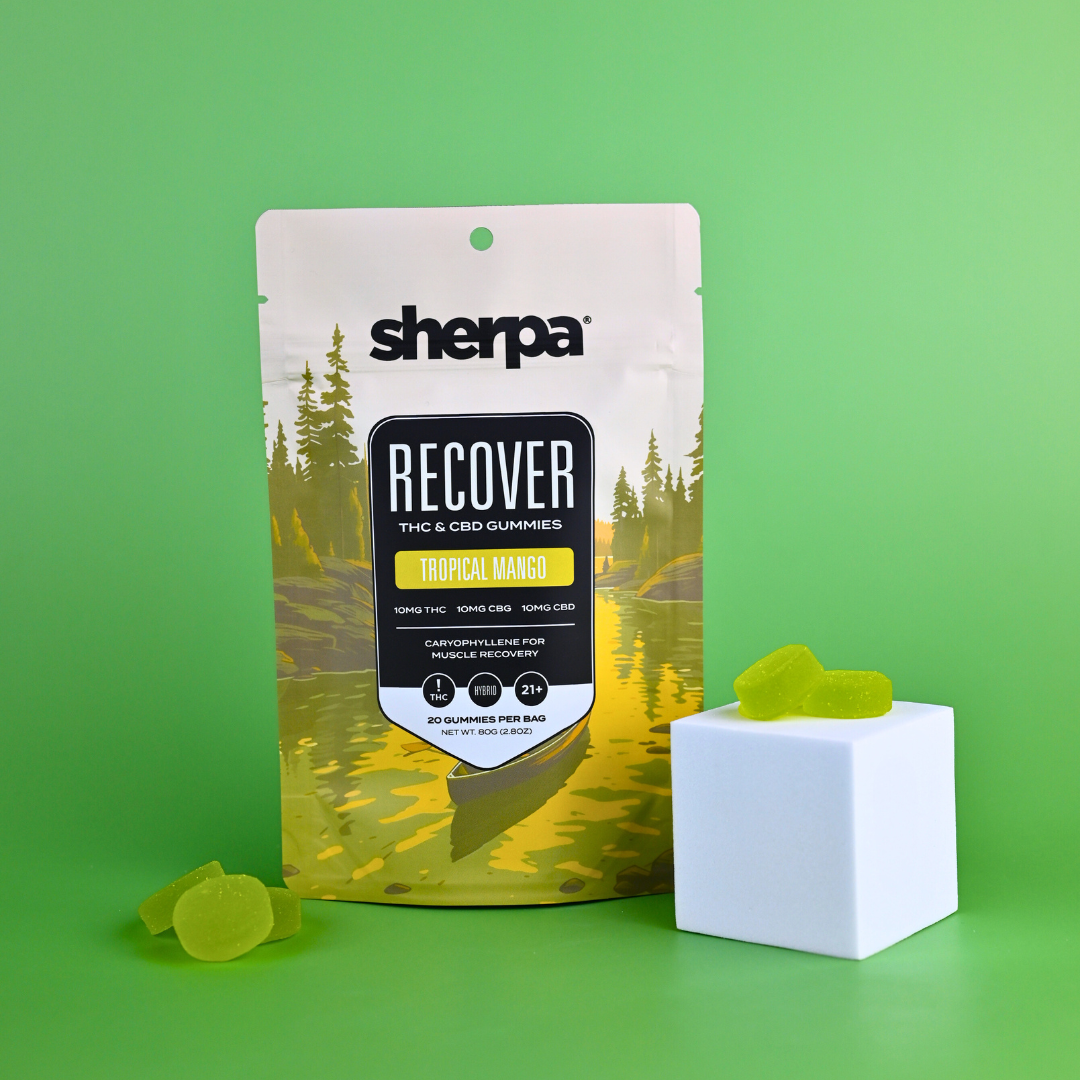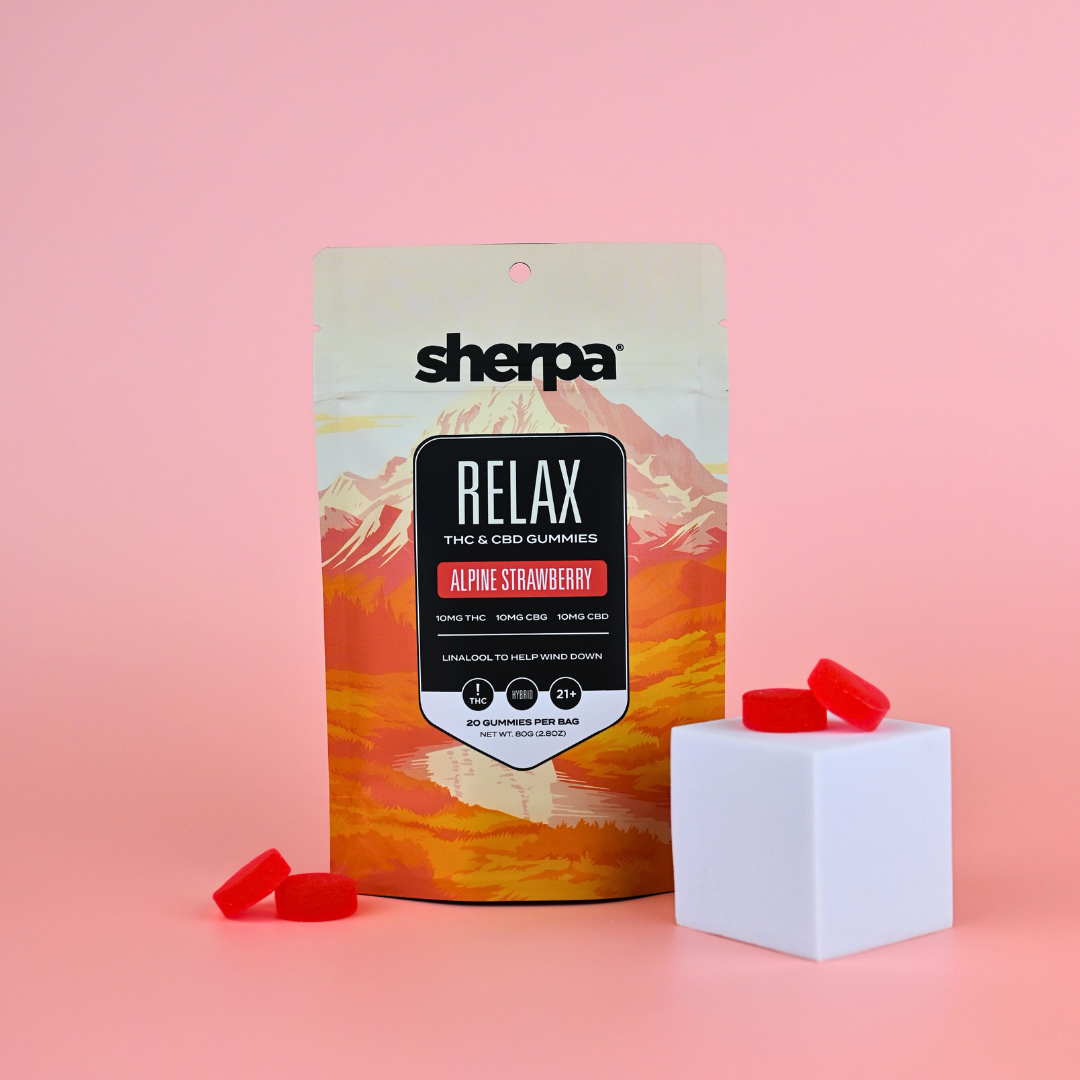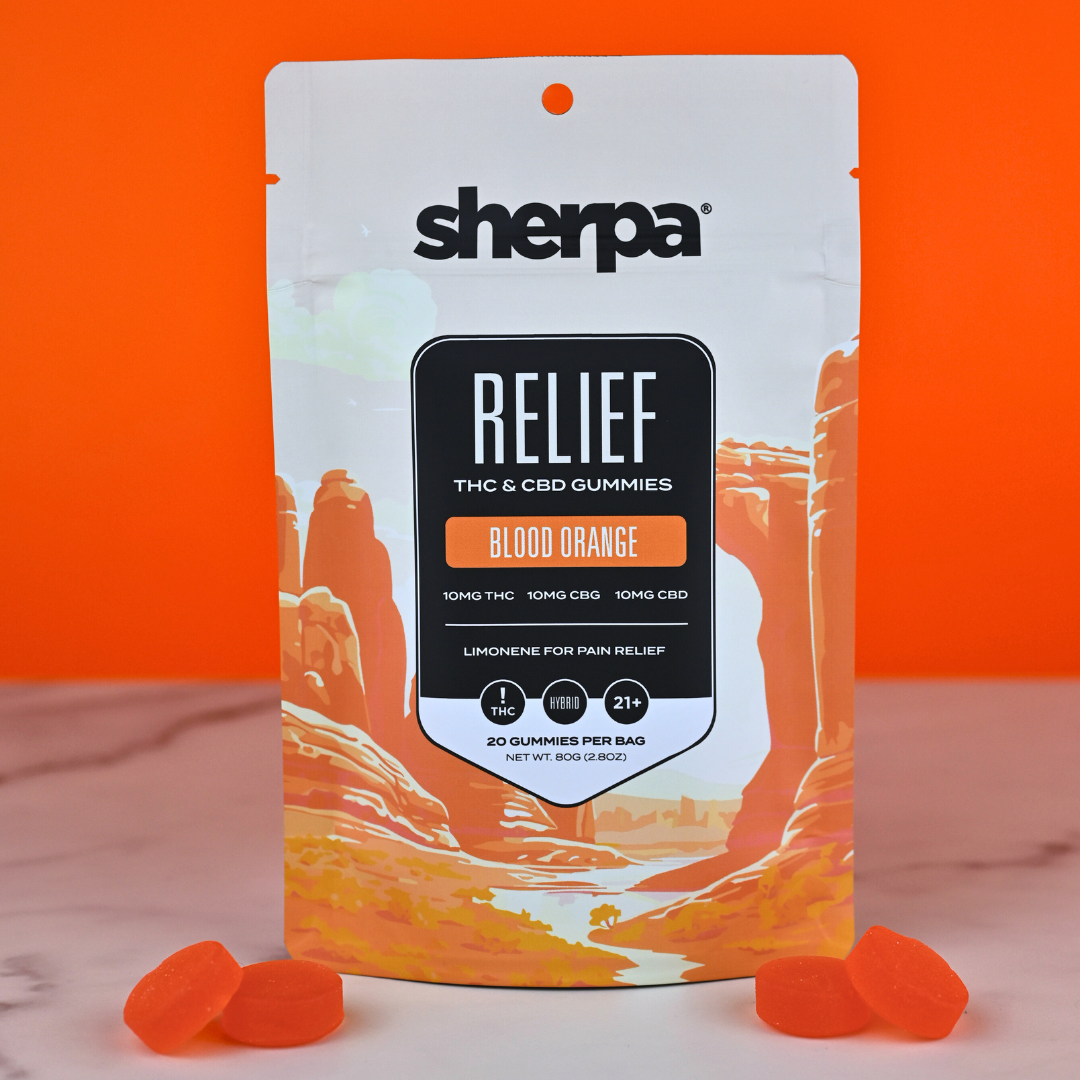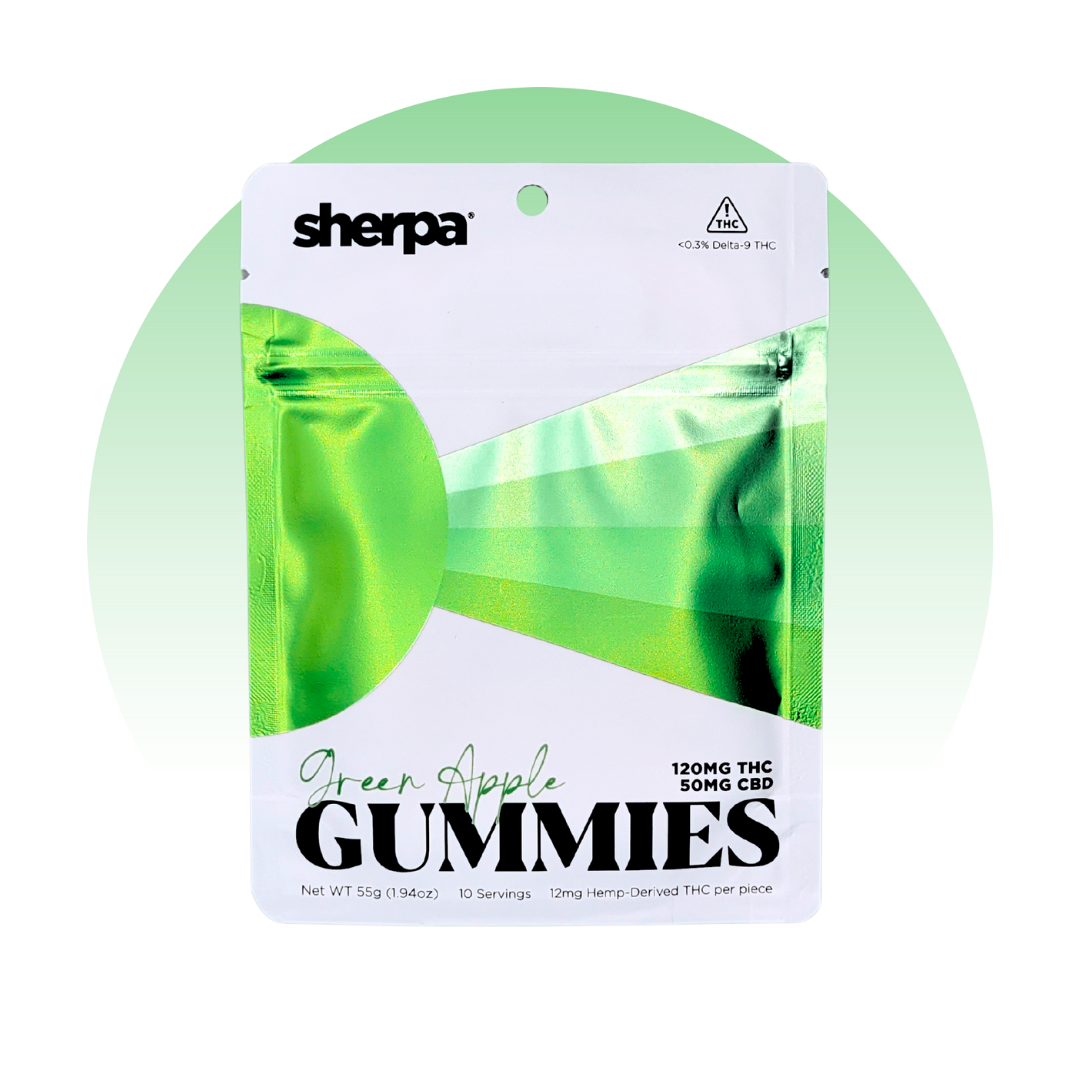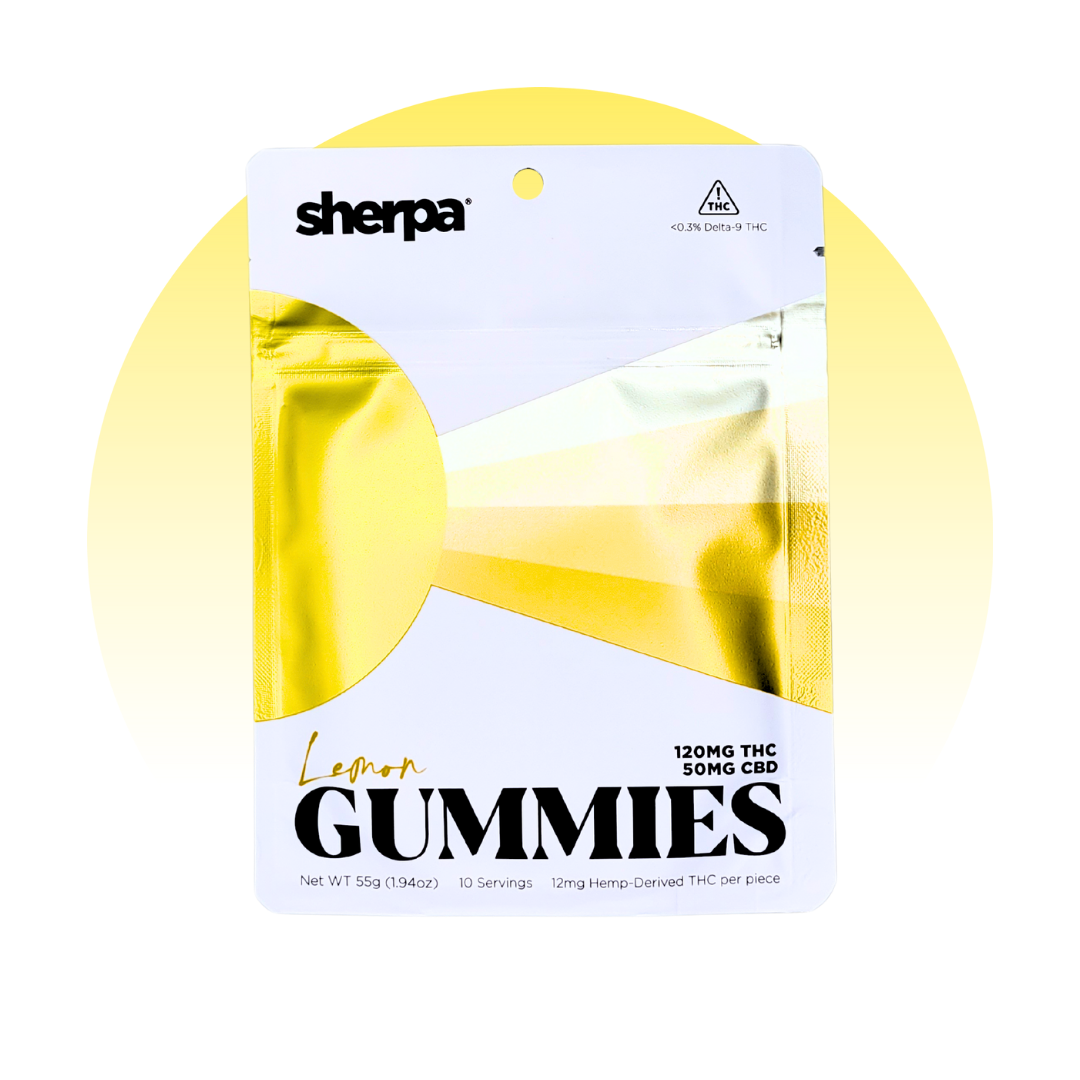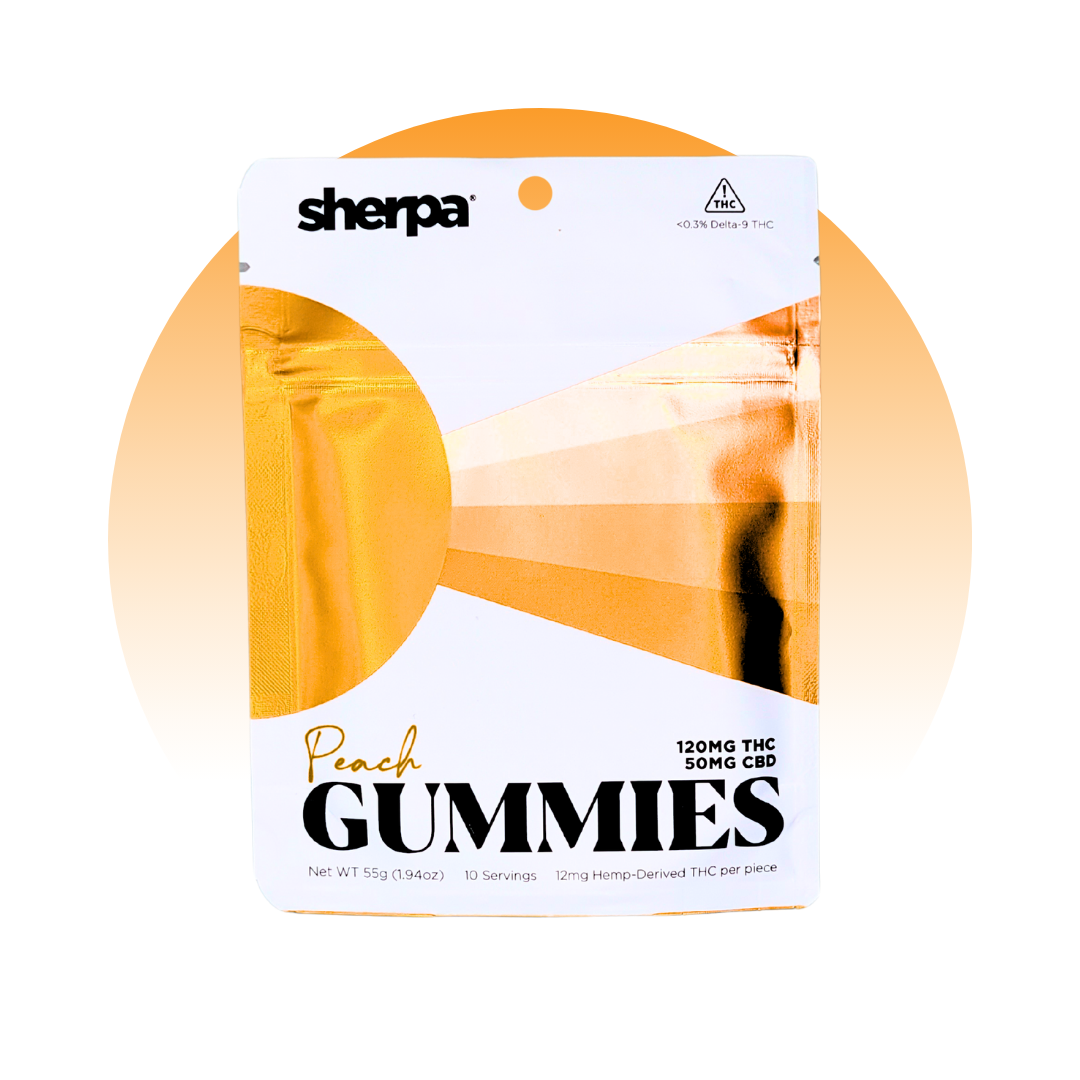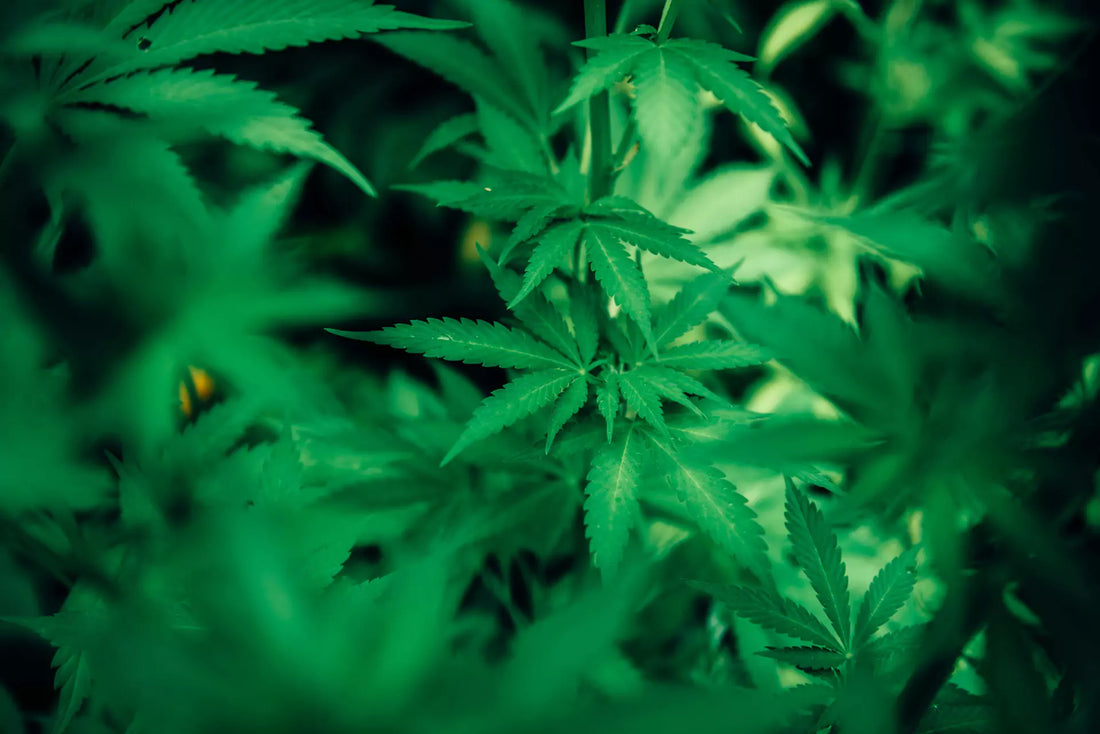
Our Blog
THCA vs. THC
THCA vs. THC
If you've been staying abreast of the cannabis industry, you've no doubt heard of THCA and its potential benefits. But unless you're a total cannabis nerd like us, you might not have a solid grasp on this alphabet soup of constantly emerging cannabinoids. HHC, THCA, CBD, CBG, CBN — it can be tough to keep it all straight.
Don't worry though. That's why we're here.
Here we're going to break down two of the most popular cannabinoids available today — the tried and true THC and the relative newcomer THCA — to get an idea of what they do, how they differ, how you should use them, and what benefits they might bring to your life.
Before we get there though, we do need to set a foundation. Let's start by understanding what exactly cannabinoids are and how they interact with your body. Then we'll move on to discuss the two in question.
Cannabinoids, the Endocannabanoid System, and You
If you're at all interested in the health and recreational benefits of the cannabis plant, you've likely heard or read the term "cannabinoid." It's a funny word for a serious class of compounds. Essentially, cannabinoids are a group of chemicals that primarily interact with the body's endocannabinoid system — also called the ECS. These compounds can be derived from the cannabis plant, synthesized in a laboratory, or they can be produced naturally within the body. Let's take a look at all three.
- Phytocannabinoids: These are cannabinoids found in the cannabis plant. The most well-known phytocannabinoids include tetrahydrocannabinol, or THC and cannabidiol, or CBD. THC is the psychoactive component responsible for the "high" associated with cannabis, while CBD is known for its potential therapeutic benefits without the intoxicating effects. We're going to be talking about the former in a lot more detail a little further down.
- Endocannabinoids: These are naturally occurring compounds produced by the human body. The two primary endocannabinoids are anandamide, or AEA, and 2-arachidonoylglycerol, or 2-AG. They both play crucial roles in regulating various physiological processes, including mood, memory, appetite, and pain sensation.
- Synthetic cannabinoids: These are chemically engineered compounds designed to mimic the effects of natural cannabinoids. They are often found in products marketed as "legal highs" and can have unpredictable effects, and some of them can be pretty dangerous. If you're an old head you might remember the craze surrounding "Spice" and "K2." Those were synthetic cannabinoids with some pretty nasty side effects.
Now that we have a pretty good idea of what cannabinoids are, let's talk about the system that allows your body to interact with them.
Understanding The Endocannabinoid System
The ECS is a complex cell-signaling system involved in maintaining homeostasis, or balance, within the body. It consists of three main components:
First are the receptors. Cannabinoid receptors are found throughout the body, primarily in the brain and immune system. The two main types are CB1 and CB2 receptors. CB1 receptors are predominantly located in the brain and central nervous system. These receptors are involved in regulating mood, memory, and pain perception. CB2 receptors are mostly found in the peripheral nervous system and immune cells, and they play a role in modulating inflammation and your body's immune response.
Next are the endocannabinoids. As we said earlier, these are naturally produced by the body and bind to cannabinoid receptors to initiate various physiological responses. They play a major role in regulating processes such as pain sensation, mood, and immune function.
Finally we have the enzymes. The ECS enzymes are responsible for the synthesis and breakdown of endocannabinoids. The main enzymes involved are fatty acid amide hydrolase, or FAAH, which breaks down anandamide, and monoacylglycerol lipase, or MAGL, which breaks down 2-AG. Hey, bet you didn't think you were about to get a master's in physiology huh?
Understanding The Interaction Between Cannabinoids and the ECS
When cannabinoids are introduced to the body through consumption, inhalation, or other means, they can bind to the cannabinoid receptors in the ECS, mimicking the effects of endocannabinoids. THC, for example, binds primarily to CB1 receptors, leading to the psychoactive effects we all know and love and influencing mood and perception.
Beyond those recreational effects, the interaction of cannabinoids with the ECS has significant implications for various health conditions. Time and time again, research is showing the potential benefits of cannabinoid use in managing chronic pain, reducing inflammation, alleviating anxiety, and improving sleep quality. These effects can vary widely from person to person due to factors such as genetics, dosage, and the specific cannabinoid profile used. More on that in just a bit.
Alright, now that we know what these chemicals are, what they do, and how they interact with your body, let's move on to talk about two extremely popular cannabinoids — THC and THCA. We'll start with the more well-known compound first.
THC: The People's Choice
Tetrahydrocannabinol, more commonly known as THC, is the primary psychoactive component of cannabis. It is responsible for the "high" that users experience, and its complex interaction with the human body has made it a subject of extensive research and public interest. To really understand THC though, we need to take a look at its chemical structure, its effects on the body, its therapeutic potential, and the ongoing debate surrounding its legality and use.
A Primer on THC
THC, a cannabinoid, is one of over 100 compounds found in the cannabis plant. Its chemical structure is characterized by a series of carbon rings and side chains, which, like we mentioned before, enables it to interact effectively with the body's endocannabinoid system. This interaction occurs primarily through binding to cannabinoid receptors. When THC binds to these receptors, it triggers a cascade of effects that influence various physiological processes.
The Magical Effects of THC
The psychoactive effects of THC are what really set it apart from other cannabinoids. When consumed, THC rapidly crosses the blood-brain barrier and activates CB1 receptors in the brain, resulting in altered sensory perception, mood changes, and cognitive effects. After consuming THC, people often have feelings of euphoria, relaxation, and enhanced sensory experiences. Be cautious though. THC can also lead to negative side effects such as anxiety, paranoia, and impaired memory or motor function — particularly at high doses or in inexperienced users.
Beyond its recreational use, THC has garnered attention for its therapeutic applications. Research shows that THC can provide relief for a range of medical conditions, but it's most commonly used to help with chronic pain, reduce inflammation, stimulate appetite in patients undergoing chemotherapy, and manage symptoms associated with conditions like multiple sclerosis. The endocannabinoid system plays a crucial role in these therapeutic effects as THC mimics the action of naturally occurring endocannabinoids, enhancing the body's ability to regulate pain, mood, and immune responses.
THC and the Long Arm of the Law
As you're well aware, the legality of THC is a contentious issue. In many regions, cannabis containing THC remains classified as a controlled substance, leading to a patchwork of regulations that vary by country and state. Some places have embraced legalization for recreational and medicinal use, while others maintain strict prohibitions. This legal ambiguity affects access to cannabis and can complicate medical research, but as public perception of cannabis continues to evolve, driven by growing acceptance and emerging evidence of its benefits, the conversation around THC and its applications will continue to shift. We'll talk more specifically about the legality of THC and THCA in just a bit.
At the end of the day though, THC is a multifaceted compound that plays a significant role in both recreational and medicinal cannabis use. Its psychoactive properties, coupled with its therapeutic potential, make it a critical area of study in the fields of pharmacology and medicine.
Now that you have a pretty good understanding of THC, its effects, and its usage, we'll turn our attention over to the young upstart, THCA.
THCA: The New Kid on the Block
We're kind of joking when we say THCA is "new." Tetrahydrocannabinolic acid actually exists in the cannabis plant — it's the chemical precursor to THC. So why is it getting so much attention lately? Let's take a look.
Feeling the Chemistry with THCA
Button up your lab coat because we're going back to chemistry class. Chemically speaking, THCA is characterized by a carboxylic acid group attached to the THC molecule, which makes it different from its decarboxylated form, THC. This structural difference is significant because it influences how THCA interacts with the body.
When cannabis is heated — through processes like smoking, vaping, or cooking — THCA undergoes decarboxylation, losing its acid group and converting to THC. This transformation is what leads to the psychoactive effects commonly associated with cannabis use. However, when consumed raw, as in juicing or in certain unheated products, THCA remains intact and does not produce a "high." That's why if you eat raw cannabis, you're not going to really feel much of anything aside from maybe a little nauseated.
THCA: What Can it Do for You?
Research into THCA is still in its early stages, but preliminary studies suggest it may offer a range of therapeutic benefits. Early research is showing that THCA may help reduce inflammation, making it a potential candidate for treating conditions like arthritis and other inflammatory disorders. Additionally, THCA has shown potential neuroprotective effects, suggesting it could play a role in protecting the brain against neurodegenerative diseases like Alzheimer's.
Unlike THC, THCA does not bind significantly to the cannabinoid receptors in the brain, which is why it lacks psychoactive effects. That said, it is thought to interact with other receptors and pathways in the body, possibly contributing to its therapeutic effects. Some studies have shown that THCA may influence the endocannabinoid system indirectly, supporting the body's natural balance, which makes THCA particularly appealing for folks seeking the potential health benefits of cannabis without becoming intoxicated. To each their own.
Where Are You Going to Find THCA?
The rising interest in THCA has also led to a growing market for raw cannabis products, such as THCA-rich tinctures, juices, and concentrates. As awareness of THCA increases, more and more people are exploring its applications, particularly in the realm of wellness and holistic health. If you're walking down the aisles of your local health-food store, you're probably going to find a handful of products containing THCA.
Despite its potential, there is still much to learn about THCA. Like we said above, the legal landscape surrounding cannabis compounds can complicate research efforts, limiting the ability to conduct comprehensive studies. As interest in cannabis science continues to grow, people are going to explore the full spectrum of cannabinoids, including THCA, to better understand their individual and synergistic effects.
So here's the TL;DR version of these past two sections. Essentially, THCA is the compound that becomes THC when heated. When taken in isolation, THCA doesn't have the intoxicating, psychoactive effects that THC does, but does provide some of the same health benefits. Got it? Good. Let's move on now to discuss the legality of these compounds.
Understanding the Legality of THCA and THC
So, let's take off the lab coat and put on the lawyer suit and tie. The legality of THCA, THC, and all other cannabinoids has been a really complex and contentious issue that has been evolving over time. It's influenced by a variety of factors including federal legislation, state laws, and public perception. A significant turning point in this legal landscape was the passing of the 2018 Farm Bill, which has had big-time implications for cannabis products across the United States.
The 2018 Farm Bill — officially known as the Agriculture Improvement Act of 2018 — legalized the cultivation and production of hemp, defined as cannabis plants containing less than 0.3% THC by dry weight. This legislation marked a key distinction between hemp and marijuana, the latter of which is defined as cannabis with higher concentrations of THC. As a result of the Farm Bill, hemp-derived products became legal at the federal level, provided they meet the THC threshold. As an aside, all of Sherpa's products are hemp-derived, meaning they are all perfectly legal to possess and consume.
This change has enabled a burgeoning market for hemp-derived products. However, legality remains a contentious issue. Many states have moved to legalize marijuana for recreational or medicinal use, and others prohibit it. Hemp-derived products, regardless of the cannabinoid you're talking about, remain legal, but as you can see, this patchwork of state laws can create some tricky gray areas. This inconsistency creates challenges for consumers, businesses, and law enforcement alike, leading to confusion over what is permissible.
Lawmakers are working to clarify things even further, but more education is needed. There isn't much appetite for outright prohibition though. Most of the legal refinements are going to be in the form of regulations on how these products are marketed and where they can be sold.
So again — quick summary. Both THC and THCA are legal, provided they are derived from hemp plants. Hemp was defined by the federal government in 2018 as cannabis containing less than .3 percent THC by dry weight. That said, the legal framework governing the cannabis industry can be tricky to navigate. Best to stick to respected brands like Sherpa which take the paper trail connecting their products to hemp plants very seriously.
So you now should have a very clear understanding of what cannabinoids are and how they work in your body. You should also have a solid grasp of what THC and THCA are and what they do, as well as their legality. Just for fun, let's put the two side by side and take a look at their differences and similarities. Some of this information might be repeated, but this is for those of you that are skimming. We know who you are…
The Differences and Similarities of THC and THCA
THC and THCA are two closely related compounds found in the cannabis plant, but they exhibit significant differences in their chemical properties, effects, and potential applications. Let's hop in and break it all down.
Chemical Structure and Composition
The main difference between THC and THCA lies in their chemical structure. THC is the decarboxylated form of THCA, meaning it went through a chemical reaction to remove a carboxyl group from the molecule. Or, In layman's terms, "heated up."
Psychoactive Effects
THC is well-known for its psychoactive properties, leading to the "high" that many users seek out. This occurs when THC binds to the CB1 receptors in the central nervous system, influencing mood, perception, and cognition. THCA does not produce these effects because of the carboxyl group. That means people consuming raw cannabis or THCA-rich products can enjoy potential health benefits without the intoxicating effects of THC, making THCA interesting for people who want the benefits of cannabis without the high.
Therapeutic Potential
Both THC and THCA have gained a lot of attention recently for their potential therapeutic applications, but they may serve different purposes. THC is widely used to alleviate chronic pain, stimulate appetite, and reduce nausea, particularly in patients undergoing chemotherapy. Its psychoactive effects can also help manage conditions like anxiety and PTSD for some individuals.
THCA, on the other hand, is still being researched for its therapeutic potential. Preliminary studies suggest that THCA may possess anti-inflammatory, neuroprotective, and anti-emetic properties. Its non-psychoactive nature allows it to be explored as a treatment option for individuals who are sensitive to THC or prefer to avoid its intoxicating effects. This makes THCA a pretty interesting candidate for treating a lot of different health conditions, although more research is needed to fully understand its benefits and mechanisms.
Legal Considerations
The 2018 Farm Bill legalized hemp-derived products containing less than 0.3% THC, which includes THCA, allowing for its widespread availability. This has led to a growing market for THCA-rich, non-psychoactive products. In contrast, THC is a lot more well-known and is subject to stricter regulations. The legal landscape can vary dramatically from state to state, creating a complex environment for both producers and customers. When you're shopping around for cannabis products, it's best to get them from a company like Sherpa, where everything is federally compliant and hemp-derived.
Tips for Consuming Cannabis Products Safely
Whether you're interested in the psychoactive effects of THC or the therapeutic benefits of THCA, there are a few precautions you should take and considerations to make when selecting and consuming cannabis products. Here are some of the biggest.
Start with a Small Dose
For both THC and THCA, especially if you're new to cannabis, it's crucial to start with a low dose. With THC, this approach helps you gauge your tolerance and avoid unwanted psychoactive effects, such as anxiety or paranoia. And while THCA is non-psychoactive, starting with a small amount allows you to assess its effects on your body and well-being. Gradually increase the dosage until you find the right balance for your needs.
Understand Different Consumption Methods
It's important to know that cannabis products come in various forms, each with unique effects and onset times. Common methods of consumption include:
- Smoking and Vaping: These methods provide quick onset, typically within minutes. They allow for precise dosing but can be harsh on the lungs for some users.
- Edibles: THC-infused edibles offer a delayed onset, usually taking 30 minutes to two hours to feel the effects. Be patient with these — you don't want to overdo it.
- Tinctures: These liquid extracts can be taken sublingually — or under the tongue — for fast absorption. Tinctures allow for precise dosing and can be a great option for those seeking a controlled experience.
- Raw Cannabis Products: For THCA, consider consuming raw cannabis in smoothies or salads. This allows you to benefit from its potential therapeutic properties, and you know you won't have any unwanted psychoactive effects.
Consider Your Environment
If you're consuming THC, your setting can significantly impact your cannabis experience. Choose a comfortable and familiar environment. Being in a relaxing space with trusted friends can help mitigate any potential anxiety or discomfort. This is less important for the non-psychoactive THCA. It's important to read the label though. A lot of products combine cannabinoids, so you don't want to take something you're not ready for.
Keep a Journal
Tracking your experiences with different THC and THCA products can be really helpful. Note the dosage, method of consumption, and the effects you experienced. This can help you identify what works best for you and guide your future consumption choices.
Consult with a Professional
If you're considering using THC or THCA for specific health conditions, you should absolutely consult with a healthcare professional knowledgeable about cannabis. They can provide guidance on appropriate dosages, potential interactions with medications, and tailored recommendations based on your health needs.
Know the Legal Landscape
Be aware of the legal status of THC and THCA products in your area. This includes understanding any restrictions on possession, sale, and consumption. Always purchase from reputable sources like Sherpa to ensure product quality and safety.
Final Thoughts on THC and THCA
When approached thoughtfully, consuming THC and THCA products can be a really beneficial, enriching experience. Each of these cannabinoids have different effects and are used for different purposes, but the result should always be the same — a happier, healthier, more well-adjusted you. If you're new to the world of cannabis, we're happy you've allowed us to be your guide on this journey! If you're more experienced, we're here if you need us to explain any of the nuances you might be unfamiliar with. Ultimately, stay safe, stay smart, and have fun!
